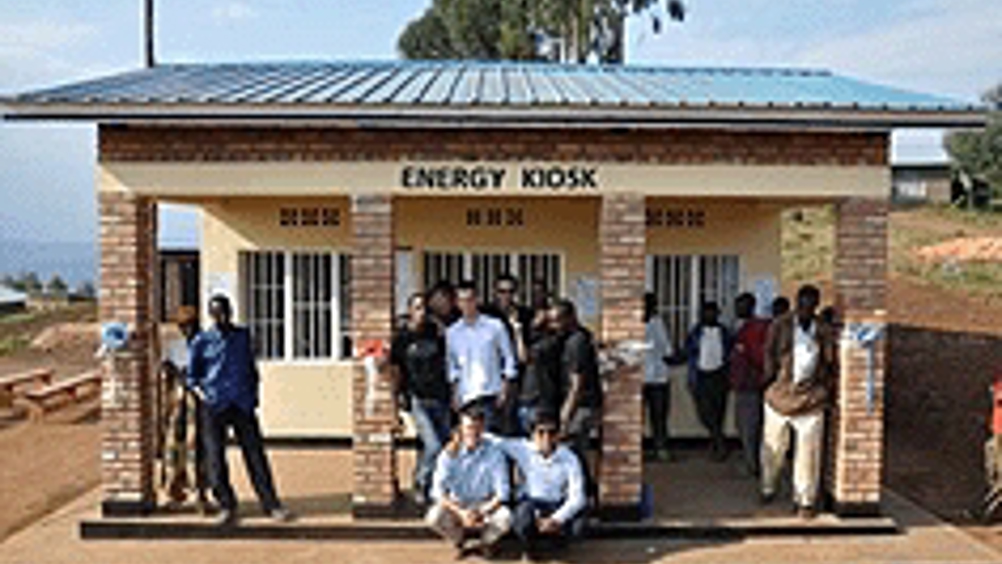ICL project supplies solar power system to Rwandans
A UK student engineering project is providing an electricity system to rural Rwandan communities using a centralised solar-energy charging station and portable battery boxes.

Since forming the project, dubbed e.quinox, in 2008, students at Imperial College London (ICL) have established a charging station in a village of 50 households in the Minazi Sector of Northern Rwanda.
The local population can charge their battery box at the ‘energy kiosk’ for a small fee. The box contains a gel-based lead-acid battery, protection circuitry and two 12V outputs with an LED lamp. The latest version also contains an in-built 65W inverter for providing 230V of AC power for small electrical appliances such as radios and mobile phone chargers.
‘We also found that people are quite creative,’ said Christopher Hopper, the chairman of the e.quinox project. ‘A man found he could put a razor on the battery box − he wanted to open his own barber shop and now we also cater for that.’
The central solar-energy station also makes it possible for powering larger community appliances such as water purifiers.
According to the Rwandan State Minister for Energy, only six per cent of the 9.7 million inhabitants of the country are connected to the grid, but the government aims to increase that figure to 16 per cent by 2012.
Register now to continue reading
Thanks for visiting The Engineer. You’ve now reached your monthly limit of news stories. Register for free to unlock unlimited access to all of our news coverage, as well as premium content including opinion, in-depth features and special reports.
Benefits of registering
-
In-depth insights and coverage of key emerging trends
-
Unrestricted access to special reports throughout the year
-
Daily technology news delivered straight to your inbox










Pipebots Transforming Water Pipe Leak Detection and Repair
Fantastic application.